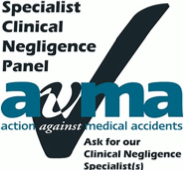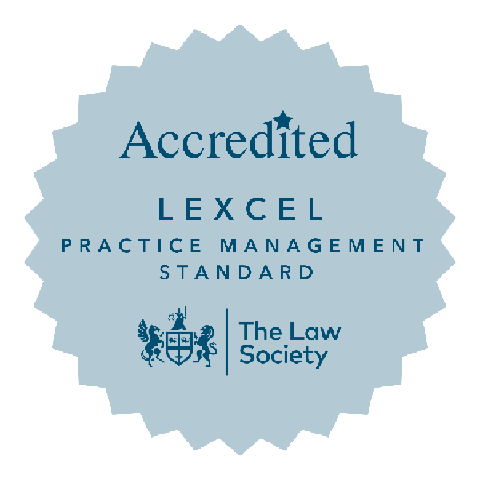- Home >
- Death by Medical Negligence Claims
Coping with a loved one’s death is a painful experience. Suspecting a family member’s passing was the direct result of a medical mistake can make a difficult situation even harder to come to terms with.
While no amount of compensation can undo this loss, the answers we uncover and the settlement we secure can help your family find peace of mind. Backed by over 30 years of experience, we approach every case with care, empathy and a commitment to achieving justice.

Do you have a death by medical negligence claim?
Even when medical professionals do their best to save lives, there are times when loss is sadly unavoidable. However, in rare incidents, the actions or inactions of a healthcare provider can directly contribute to the wrongful death of someone you love.
Whether a life-threatening condition was misdiagnosed or a mistake occurred during surgery, we understand the pain and confusion that come with such a tragic event. As experienced medical negligence solicitors, we work tirelessly to give you the clarity and closure you need to move forward.

The specialist death by medical negligence claims solicitors for Essex & East Anglia
Losing a loved one is never easy, and the idea of pursuing a claim can feel daunting at such a difficult time. We appreciate the complex emotions involved in these cases, and take every step to make this process as manageable as possible for you.
As a law firm focused solely on medical negligence, we have the knowledge and experience to investigate your wrongful death compensation claim. Working on a strict ‘no win, no fee’ basis, we help you pursue a fair settlement with total reassurance, with 96% of our cases resolved outside the courtroom.
What does our death by medical negligence claim process look like?

A free initial consultation
Call us, request a callback or complete our online form and we’ll assess if you have a valid medical negligence claim.

Funding your claim
Discover the ways we can fund your claim without you paying a penny at any stage of the process.

Investigating evidence
We gather medical records, witness statements and more to learn what happened to you and prove your claim.

Instructing independent medical experts
We work with impartial, experienced medical experts to establish whether your injuries were due to substandard medical care.

Valuing your claim
We assess your health and financial losses to accurately estimate how much compensation your claim is worth.

Presenting your case
We contact the Defendants and the Courts on your behalf to set out your allegations and receive a response.

Negotiating a settlement
We work to achieve a fair settlement for you outside the courtroom – this is how 96% of our cases end.

Preparing for Trial
If we must proceed to Trial, we fully prepare you for what to expect so you receive the right result in court.
FAQs about death by medical negligence claims
What is a wrongful death claim?
In some cases, it is not always possible for healthcare professionals to save someone, even if their medical treatment is prompt and professional. However, mistakes can happen that lead to the preventable death of patients.
While these events are thankfully rare, if you believe a loved one died as a result of negligent treatment, your family may be able to file a negligence claim for death. This is an opportunity to secure financial support, better understand what happened, and prevent the same mistakes from happening to other people.
Wrongful death cases are often complex. Reaching a fair outcome involves gathering evidence to prove the medical treatment your relative received fell below reasonable standards and was directly responsible for their passing.
Who can make a claim for death caused by medical negligence?
Only one person can pursue compensation for wrongful death. Whoever brings that claim must include the claims of everyone entitled to compensation, including:
- Those named as beneficiaries of the deceased’s estate in a Will or entitled under intestacy law, or the individuals entitled to compensation for the deceased’s pre-death pain, suffering and loss of amenities (also known as general damages)
- Those who fall into one of the categories of people entitled to claim a bereavement award under The Fatal Accidents Act 1976
- Those who were dependent on the deceased either financially or for services that the deceased provided to them at the time of the death, or who had a reasonable expectation that they would become so dependent in the future
If the deceased person had written a Will before their passing, claiming on behalf of the deceased will usually fall to the executor of the Will. If they died without a Will, then a family member – typically a spouse, child or parent of the deceased – will carry this out.
What evidence is required to prove a wrongful death claim?
Proving negligence in a wrongful death claim involves answering three important questions:
- Did a medical professional breach their duty of care during the deceased’s treatment?
- Did the individual pass away as a result of this treatment?
- Was the medical professional’s breach of duty directly responsible for this outcome?
If the claim does not satisfy the above questions, there is no grounds for a claim. That is why we thoroughly analyse all available evidence and work closely with independent medical experts to build the clearest possible picture. This may mean accessing and assessing a variety of documents, including:
- Medical records
- Witness statements
- Personal statements
- Photographs
Our solicitors may also request files such as bank statements, bills and witness statements to determine who is entitled to compensation and quantify the value granted to each of the deceased’s dependents.
How much compensation can be claimed for death by medical negligence?
The value of your wrongful death claim will be unique, depending on the details surrounding your loved one’s unfortunate passing.
While we know that no amount of money can replace what has been lost, successful claims can help ease the financial burden on your family and make life moving forward a little easier.
As specialist wrongful death solicitors, we take the time to understand the full impact of this loss, and ensure the compensation you and your relatives receive reflects this.
How long do I have to make a claim for medical negligence leading to death?
Similar to other medical negligence cases, a wrongful death claim must be brought within three years of a family member’s passing. While there are exceptions to this rule, we highly recommend bringing a claim as soon as possible.
How long does it take to resolve a claim for death by medical negligence?
In most circumstances, we would expect a death by negligence claim to take between two and five years to resolve. However, the time it takes for your case to settle can vary, depending on the stance taken by the Defendants and the specific complications of your loved one’s case.
Contact our expert death by medical negligence claims solicitors
If you believe negligence was to blame for the loss of a loved one, our team is here to listen and guide your next steps.

Lexcel accredited medical negligence claims solicitors
We are proud to be a Lexcel-accredited practice. The accreditation is a mark of quality and comes directly from the Law Society.
A recent assessment described us as a “Centre of Excellence” and we continue to operate to the highest standards across all main areas of our field. These include client care, case management, financial management, structure and strategy, people management, risk management, information management and file management.




Industry Recognised

